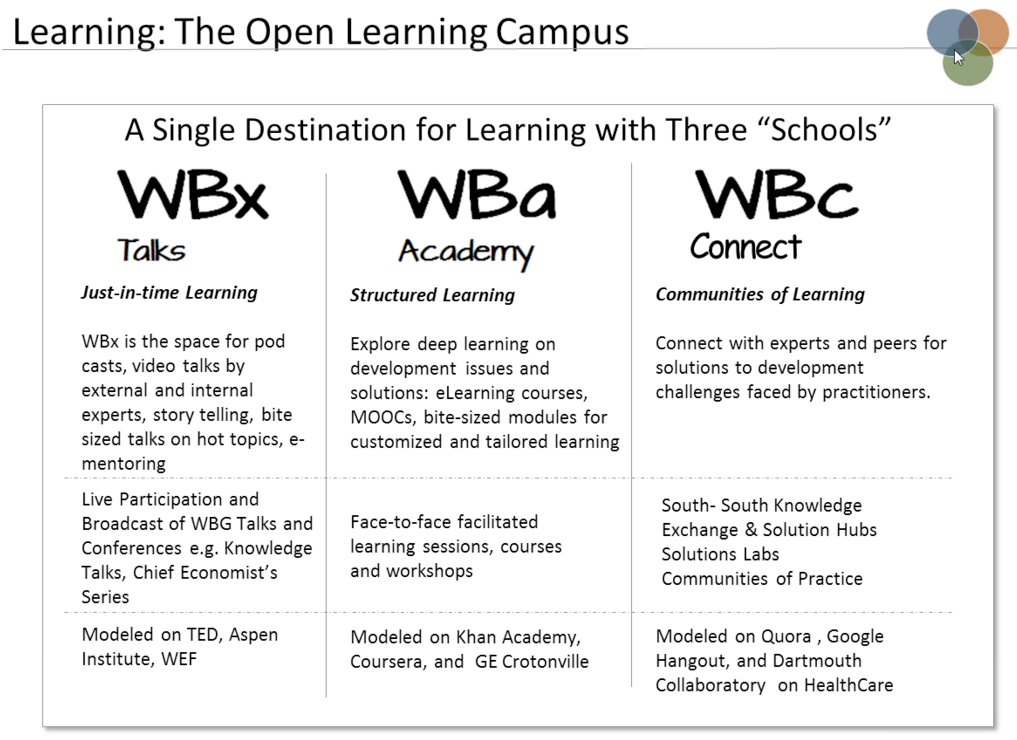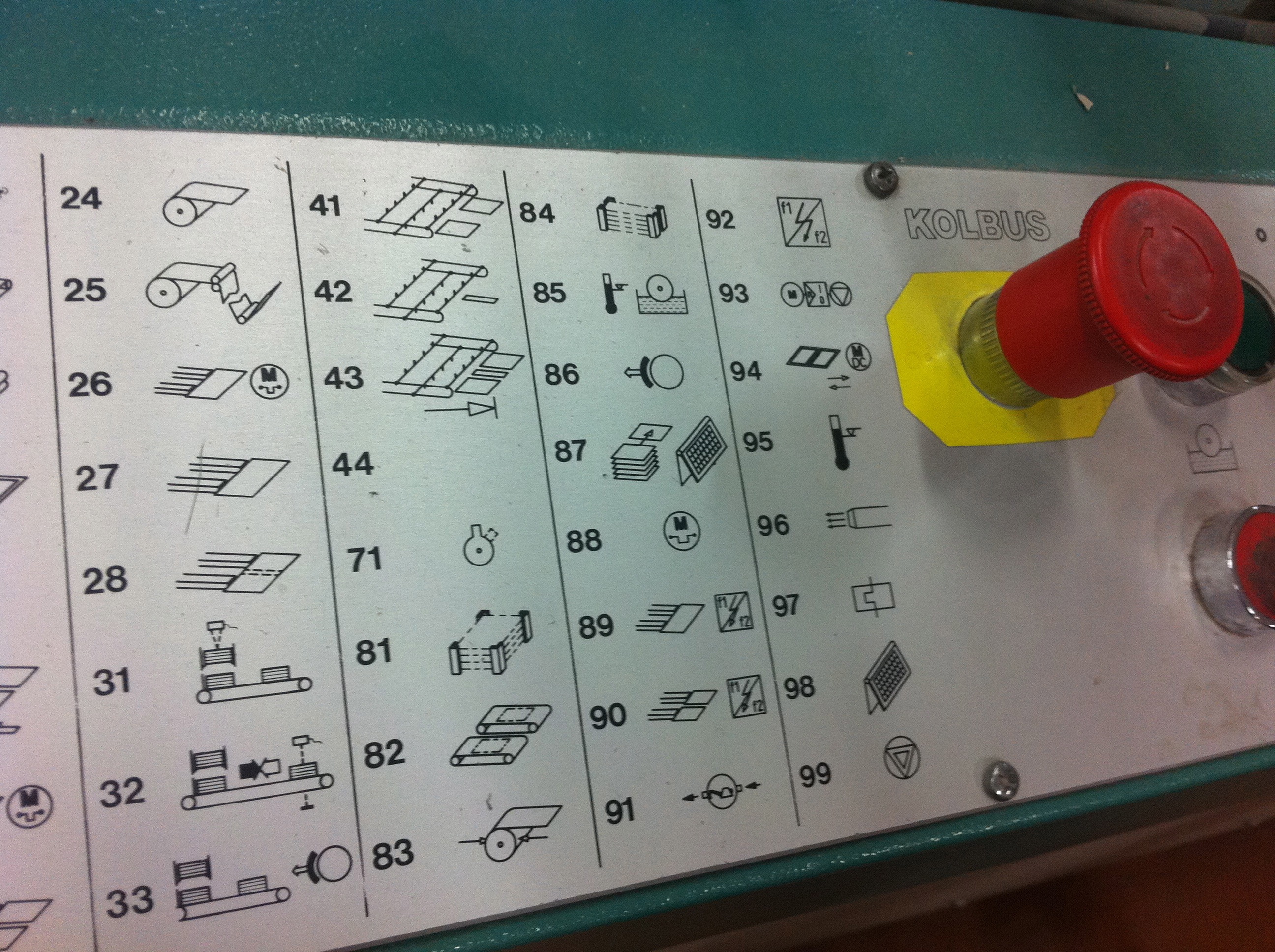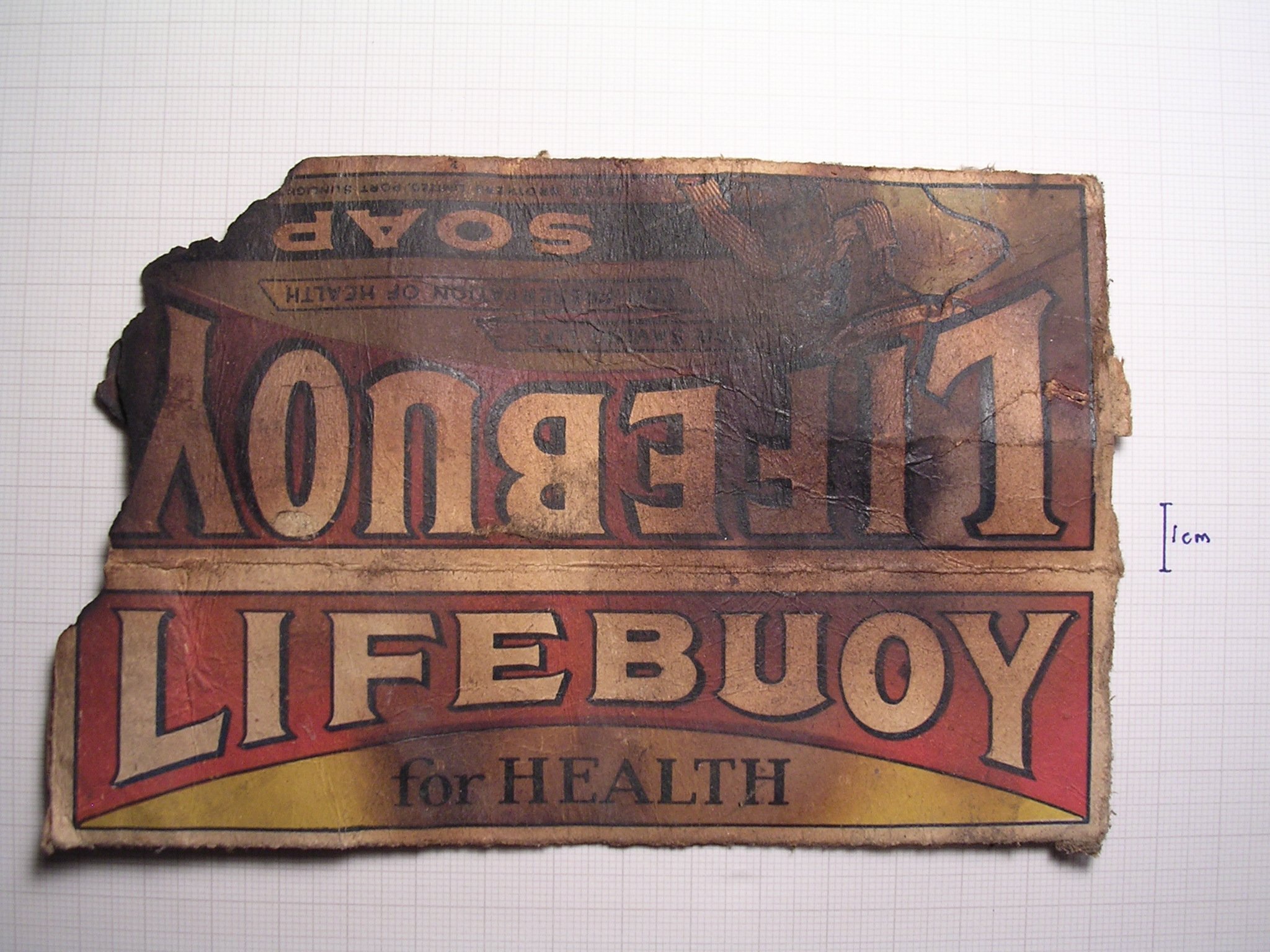
On this page I will add links to the video and audio recordings of the Scaling corporate learning online symposium.

On this page I will add links to the video and audio recordings of the Scaling corporate learning online symposium.

For organizations, the paradigm of workplace learning remains focused on internal development of staff, on the premise that staff need to be learning to improve, if only to keep their knowledge and competencies current. In the past, education advocates struggled to gain recognition for the need to continually learn in the workplace.

If you are interested in the strategic significance of educational technology for workplace learning, make sure that you do not miss the open, online symposium happening 18-19 June 2014. The event is organized by George Siemens and hosted by Corp U. I will be facilitating sessions with the World Bank and OECD, as well as presenting on partnerships between corporate and non-profit learning leaders to scale up humanitarian education.

Few empirical studies have examined the relationship between learning organization dimensions and nonprofit performance. Susan McHargue’s study was conducted to understand this relationship and how it impacts nonprofit organizations’ ability to become nonprofit learning organizations. The results offer guidance to human resource developers and managers who desire to integrate learning organization concepts into nonprofit organizations.
With my eight-year-old son, we are planning to build and program a Lego Mindstorms EV3 this Summer. They are robots that look cool and for which you can code tasks and decisions. So, at Google’s Course Builder workshop, when I heard Jennifer Kay, a computer science professor, explain that she has been using robots (including the Lego ones) for education for years, I couldn’t help but ask for an interview.

June is good busy. Here are three highlights. Wednesday and Thursday 4-5 June 2014 I’ll be at the second Google Course Builder Faculty Workshop in Zurich. Google engineers built their own platform to host courses internally, but soon offered public-facing courses like “Power searching with Google”, and then open-sourced Google Course Builder.

Here is an unedited chat with George Siemens about corporate MOOCs. He is preparing an open, online symposium on scaling up corporate learning, to be announced soon. The World Bank and OECD are two international organizations that will be contributing to the conversation. Here are some of the questions we briefly discussed: What is a “corporate MOOC” and why should organizations outside higher education care?

There is of course an intimate relationship between communication and education. In many universities, both sit under the discipline of psychology. However, in most international organizations, these tend to be siloed functions.

A learning organization is an organization that has an enhanced capacity to learn and change.

Scale : Predictions over the impact of climate change and globalization suggest that we will see more frequent disasters in a greater number of countries, along with more civil unrest in those states less able to cope with this rapidly changing environment, all generating a greater demand for humanitarian and development assistance (cf. Walker, P., Russ, C., 2012.

In a complex, knowledge-driven society, learning, education and training are key to sustainability. Sustainability initiatives need to explicitly make learning strategic in order to succeed in the face of growing challenges. No organization, no sector can do so alone. Professionalization alone is not the answer. Education is failing to prepare humanity for disasters, climate change, globalization or conflicts.